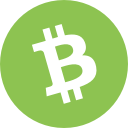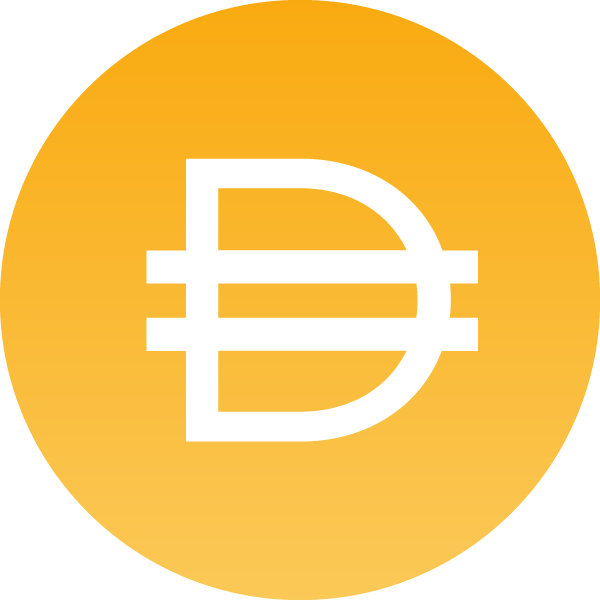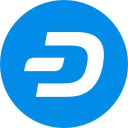Qtum (QTUM) is not tradable on Coinbase.
Data is sourced from CoinMarketCap and other third parties. We make no representation on the accuracy of the data provided. Learn more

Qtum Price (QTUM)
Market stats
Qtum is on the decline this week. ↘
The price of Qtum has decreased by 0.11% in the last hour and increased by 4.29% in the past 24 hours. Qtum’s price has also fallen by 2.76% in the past week. The current price is $3.09 per QTUM with a 24-hour trading volume of $49.70M. Currently, Qtum is valued at 97.11% below its all time high of $106.88. This all-time high was the highest price paid for Qtum since its launch.
The current circulating supply of Qtum is 105,490,846 QTUM which means that Qtum has as total market cap of 105,490,846.
Overall
Data is sourced from CoinMarketCap and other third parties. We make no representation on the accuracy of the data provided. Learn more
Market cap
$326.0M
Volume (24h)
$49.7M
Circulating
105.5M QTUM
All time high
$106.88
Price change
1 hour
↘ 0.11%
1 day
↗ 4.29%
1 week
↘ 2.76%
2 weeks
↘ 7.09%
1 month
↗ 1.84%
1 year
↗ 7.07%
1 year benchmarks
Performance
↗ 9.25%
Vs. Market
↘ 51.74%
Vs. BTC
↘ 60.22%
Vs. ETH
↘ 29.21%
About Qtum
Qtum (pronounced “quantum”) is a cryptocurrency that seeks to add Ethereum smart contracts to Bitcoin’s blockchain while using proof of stake for verification. Qtum’s goal is to increase the interoperability of smart contract applications.
FAQ
Qtum (pronounced 'quantum') is an open-source blockchain platform and value transfer protocol that utilizes a proof-of-stake (PoS) consensus mechanism. It aims to amalgamate the strengths of Bitcoin and Ethereum on a single chain. Built on Bitcoin's UTXO transaction model, Qtum incorporates the functionality of smart contract execution and Decentralized Applications (DApps). The platform has recently extended its support to DeFi applications and hosts over 20 tokens on its blockchain. Qtum's unique technologies, the Account Abstraction Layer (AAL) and the Decentralized Governance Protocol (DGP), aim to address issues of interoperability, governance, rigidity, and the costliness of proof-of-work mechanisms.
Qtum operates through a unique consensus mechanism known as Mutualized Proof-of-Stake (MPoS). This mechanism encourages users to keep their coins locked to facilitate and secure block validation, a process known as staking. The right to validate a block is determined by a combination of a user's connectivity to the network and random chance. The block reward is constant and does not depend on coin age, with rewards spread proportionally to the stake. This means the more coins a user contributes to the process, the more they may be compensated. Qtum's Account Abstraction Layer (AAL) integrates the UTXO account layer inherited from Bitcoin with the smart contract layer, inspired by Ethereum. This allows users to build applications and host them on virtual machines, including the Ethereum Virtual Machine (EVM), and the x86 virtual machine.
Qtum aims to provide a general-purpose blockchain that can be used to address a variety of issues found in BTC and ETH blockchain platforms. Its unique technologies, the Account Abstraction Layer (AAL) and the Decentralized Governance Protocol (DGP), allow for the creation and hosting of applications on virtual machines. This includes the Ethereum Virtual Machine (EVM) and the x86 virtual machine. Qtum's compatibility with several programming languages like C, C++, Rust, and Python, makes it a potential platform for developers looking to build and deploy decentralized applications. The platform has integrated common programming libraries in the form of smart contracts.
Qtum was announced and held an Initial Coin Offering (ICO) subsequently, gathering significant resources. The Qtum main chain was released later. Initially, the Qtum coin was issued as an ETH-20 token, but with the launch of the mainnet, it was converted to native blockchain. The project was initiated by Patrick Dai, who studied computer science at Draper University and worked on several blockchain projects before starting Qtum. The other two co-founders are the CTO and blockchain architect Neil Mahi and lead developer Jordan Earls. The Qtum team also includes several high-profile backers, including Roger Ver from Bitcoin.com and Jeremy Gardner, an early crypto investor and co-founder of Augur.
We update our Qtum to USD currency in real-time. Get the live price of Qtum on Coinbase.
The current market cap of Qtum is $325.99M. A high market cap implies that the asset is highly valued by the market.
The all-time high of Qtum is $106.88. This all-time high is highest price paid for Qtum since it was launched.
Over the last 24 hours, the trading volume of Qtum is $49.70M.
Assets that have a similar market cap to Qtum include SafePal, Aleph Zero, L7, and many others. To see a full list, see our comparable market cap assets.
The current circulating supply of Qtum is 105 million.
Qtum Price History
Date | Price | Change |
|---|---|---|
Today (January 22, 2025) | $3.09 | 4.18% |
24 hours ago (January 21, 2025) | $2.96 | 4.29% |
1 week ago (January 15, 2025) | $3.18 | -2.76% |
1 month ago (December 22, 2024) | $3.04 | 1.84% |
1 year ago | $2.83 | 7.07% |
Get up to $200 for getting started
Earn free crypto after making your first purchase. Terms apply.

Sum of median estimated savings and rewards earned, per user in 2021 across multiple Coinbase programs (excluding sweepstakes). This amount includes fee waivers from Coinbase One (excluding the subscription cost), rewards from Coinbase Card, and staking rewards.
Qtum Calculator
How much is 1 QTUM?
Conversion Table
1 Qtum (QTUM) to Real (BRL)
R$18.61
1 Qtum (QTUM) to Nigerian Naira (NGN)
NGN 4,796.11
Coinbase Bytes
Coinbase Bytes
The week’s biggest crypto news, sent right to your inbox
Learn how we collect your information by visiting our Privacy Policy.
Related Assets
Discover conversions
Popular cryptocurrencies
A selection of cryptocurrencies in the top 50 by market cap.
Comparable market cap
Of all the assets on Coinbase, these 12 are the closest to Qtum in market cap.
Discover more assets
A selection of other relevant cryptocurrencies
Certain content has been prepared by third parties not affiliated with Coinbase Inc. or any of its affiliates and Coinbase is not responsible for such content. Coinbase is not liable for any errors or delays in content, or for any actions taken in reliance on any content. Information is provided for informational purposes only and is not investment advice. This is not a recommendation to buy or sell a particular digital asset or to employ a particular investment strategy. Coinbase makes no representation on the accuracy, suitability, or validity of any information provided or for a particular asset. Prices shown are for illustrative purposes only. Actual cryptocurrency prices and associated stats may vary. Data presented may reflect assets traded on Coinbase’s exchange and select other cryptocurrency exchanges.















































